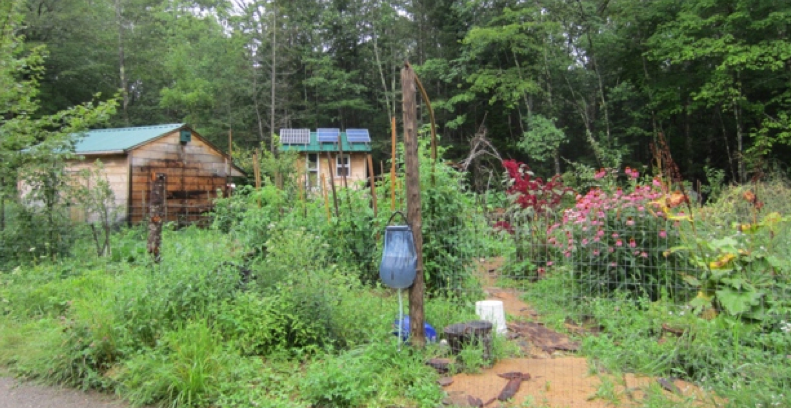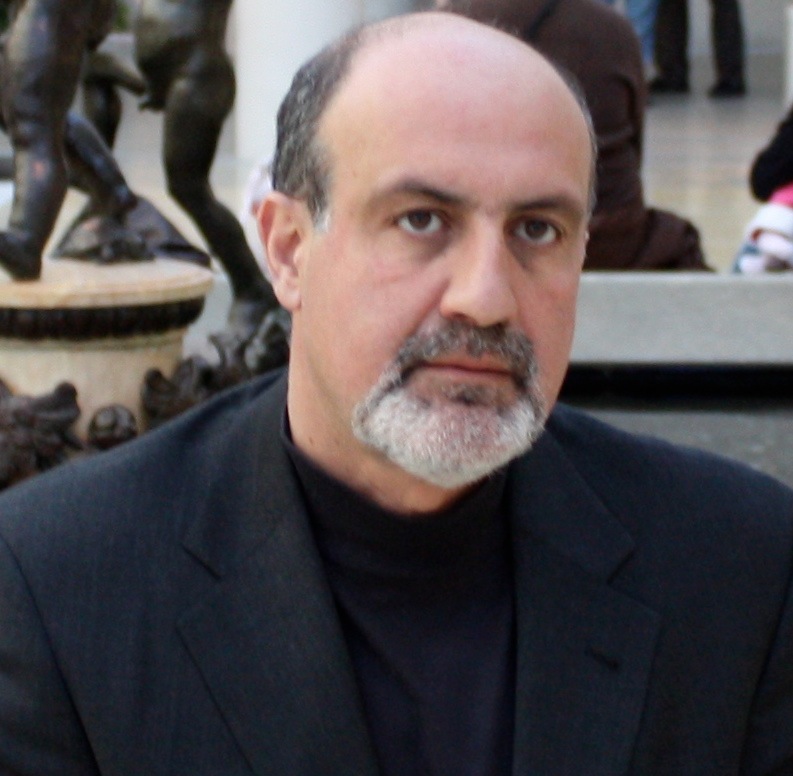[Editors note 2022: I’ve come to see Eisenstein’s thinking as deeply flawed listen to this podcast for what I agree are many of the problems with his work. I also have come to see the problems with my own posts here. Sometimes you have to fight. Sometimes you have to be cranky. To not fight or be cranky in the face of death and injustice is an unethical political stance.]
I have a rule about Root Simple content that I call the three “Ps:” keep all posts practical, positive and peaceable (by peaceable I mean non-divisive). This is not to say that I think that we should all put our heads in the sand and ignore the important issue of our time. But if you want strife and conflict there’s plenty of options, especially on the web, and I don’t need to add my voice to the din.
So, ironically, I spent many hours over the past few days writing a cranky blog post that violated all of the “Ps.” In it I railed against Facebook, Elon “Rocket Man” Musk’s techno-utopianism and the horrible day LA politicians and film industry lobbyists stole the green bike lanes on Spring street. While these issues are significant, my post didn’t have anything new to say. I fell into the knee-jerk belligerence trap that Charles Eisenstein said we have to get past in a prescient lecture at St. James Church in London back in 2016. I listened to that lecture again last night and I suggest you listen too if you haven’t already (this is the second time I’ve posted it). In the lecture, Eisenstein articulates a new narrative outside of the old story of “separation.” Eisenstein says,
But on the other hand, we do know what to do. And often what we need to do are precisely those things that seem irrelevant. The heart says yes to them, but the mind says how could that possibly help? How could it possibly help to spend ten years trying to free one orca from captivity? How could it possibly help to spend ten years taking care of one old woman with Alzheimer’s? The things that draw us, our world story does not have a place for them, so they seem impractical, they seem unrealistic or naïve. But when we understand the deep root of the crisis, which is the totality of the story of separation that surrounds us, then we see that yeah, these are actually essential, because they change the foundation of the world-destroying machine . . .
On a personal level, it’s almost a cliché, but bringing more love into the world. And also on a community level, also through what you devote your life energy toward. If it doesn’t fit into the story of separation, if it’s dedicated to bringing beauty, love compassion…..this is not news to anybody, right? But I guess the reason I’m saying it is to illuminate the political dimension of it. And maybe that’s what the song is. To listen to what is beautiful, to what calls to your heart. Maybe that’s the organ that listens to the song, that guides you to do things that the mind, which is still lost in the maze, may not recognize as relevant, but which is actually our path to that more beautiful world that we remember and recognize and carry with us.
In between working on that unsuccessful and angry blog post I was finishing the dovetailed drawers I had constructed over the holidays. Rather than wasting time trying to fight Facebook I could have been writing up a post about those drawers. As Eisenstein suggests, perhaps its time to do the things that don’t make sense and that don’t seem important: pursue beauty, grow something, build something. Stay tuned for a post on those dovetails.
Support Root Simple
The Family Meal: Home Cooking with Ferran Adrià is the first home cooking cookbook by the world’s greatest chef, Ferran Adria. It features nearly 100 delicious recipes by Ferran Adria that anyone can prepare, inspired by the dishes eaten every day by the staff at his legendary restaurant El Bulli, awarded World’s Best Restaurant five times.






I remember listening to part of this the first time you posted it…re-listening now and I’m 18 minutes in and what he says is rather prophetic. I had to double check that he was talking prior to the election.
I’m kinda interested in the Facebook rant. I permanently deleted mine (or so FB promises to me) about a month ago after having it closed for about 2.5 years. It felt good to cut that out for good.
Yeah, it’s remarkably prophetic considering when he delivered that talk (well before the election).
In a nutshell, what I said about Facebook is that it has crushed small independent blogs like ours as well as feeding our narcissism and encouraging divisiveness. I would really like to pull the plug on it too and would if not for the fact that two organizations I belong to use it for announcements and organizing meetings. This is, of course, insidious as it keeps those of us who would like to leave Facebook attached. I may still leave Facebook if I can figure out a way to do so. I don’t look at it much anymore.
Very excited to hear about (and see!) updates on the dovetails!
Yes, let there be dovetails! Happy New Year!!
It is easy for me to get caught up in all that is annoying and negative and to also fall into fear. But stopping and becoming the ‘observer’ of my thoughts reminds me of Max Ehrmann’s Desiderata that hangs on my wall. Then I remind myself that it’s the sensational, fear-mongering news that ‘sells’ and those that speak it grab people’s attention. (After all, our basic instinct is to protect ourselves from those wild animals lurking behind every tree.) But despite it all ‘it is still a beautiful world.’
Thank you for posting this exceptional podcast. I needed to hear it.
Thanks for your practical, positive, and peaceable blog. Root Simple is an oasis in the churning ocean of nuttiness & nastiness out there.
As for FB, I hear ya. I myself posted on why I deactivated my account– but that post was not so much to attack FB or convince anyone else to quit (though I would suppose it may have done that) as to articulate for myself why, exactly, I was deactivating and then have the post there available for a reread at any time. (For the record, it has been more than 2 years since I left FB and I have zero intention of ever going back.)
I look forward to listening to the podcast. Happy 2018!
I don’t use facebook and never have despite the fact that all my oversees relatives use it and now I can’t keep up with them.
I know that I would find it difficult to keep my opinions to myself and therefore would probably alienate family, so best not to go there.
Pingback: Oceanic Wilderness